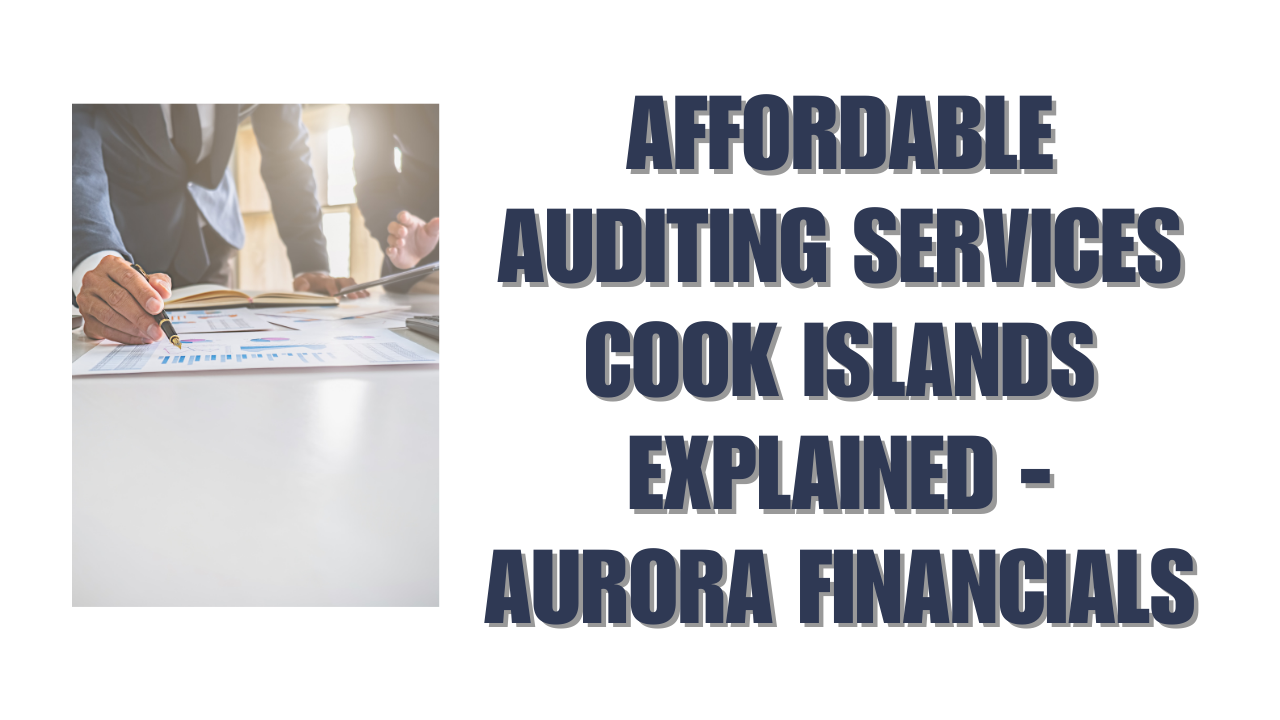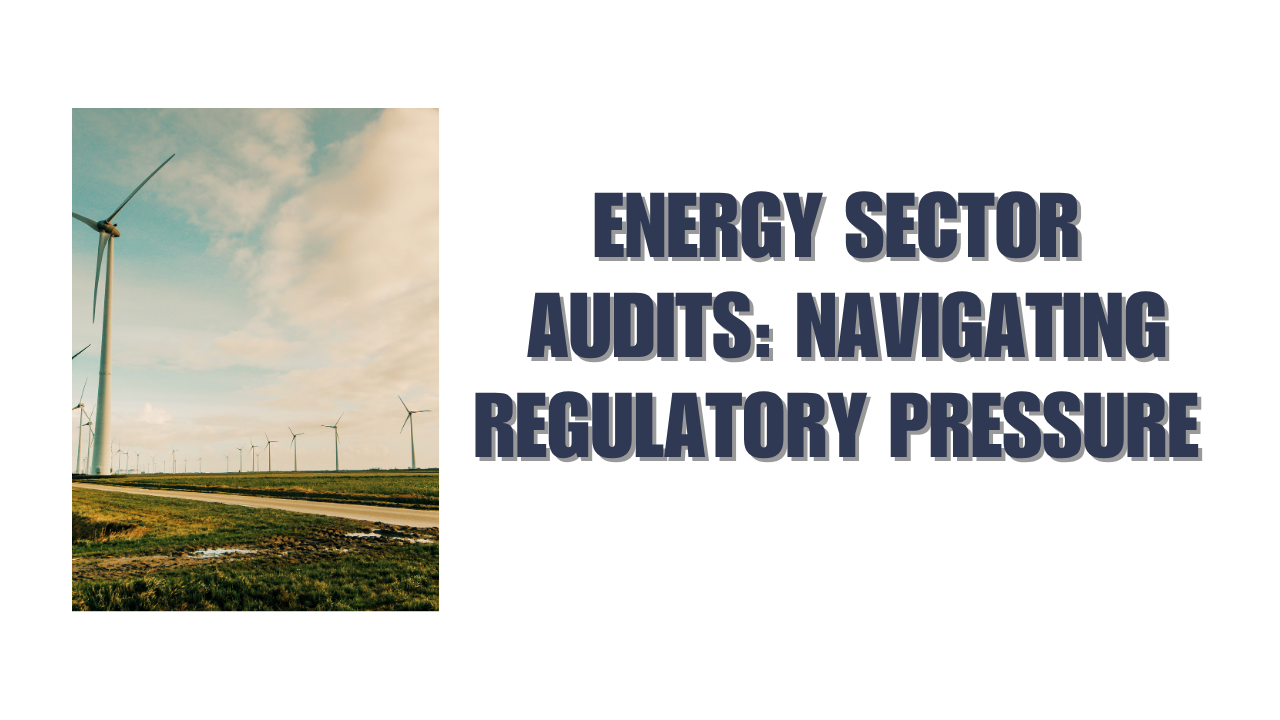The Cook Islands has substantially simplified its auditor hiring process under Section 169 of the Companies Act. The new rules allow any qualified person with Registrar recognition to serve as an auditor. This change removes the previous certified accountant requirement.
Businesses that earn over $40,000 annually must follow specific audit requirements for tax registration and compliance. The Registrar’s official register of qualified auditors helps businesses verify and find suitable candidates.
Our detailed guide will help you direct the auditor hiring process in the Cook Islands. You’ll discover qualification requirements and step-by-step hiring procedures. The guide also covers everything in compliance that your business needs to meet current regulations.
Understanding Auditor Requirements in Cook Islands
The auditor qualification framework in Cook Islands went through a most important change after introducing the revised Section 169. Strict standards determined who could work as an auditor in the past. The rules have changed considerably over the last several years.
Section 169 qualifications explained
The updated Section 169 regulations have simplified auditor qualifications by removing rigid standards. Anyone who wants to serve as an auditor must receive the Registrar’s formal recognition. This recognition-based system will give a more flexible approach while you retain control of professional standards. Under Section 169(3), the Registrar recognizes qualified auditors based on either:
- Experience and qualification requirements specified in regulations, or
- The Registrar’s assessment of appropriate experience and qualifications if no regulations exist
This system creates a flexible framework that adapts to industry needs and ensures quality standards.
Who can legally serve as an auditor
The legislation states that a person (either an individual or company) becomes a qualified auditor by meeting two vital conditions:
- They have received written recognition from the Registrar as a qualified auditor
- They are not disqualified under any provisions of subsection (2)
Banks must follow additional requirements. They need to appoint an “approved auditor” who belongs to an internationally recognized professional accounting body and a reputable accounting firm.
Disqualifications and conflicts of interest
These individuals cannot act as company auditors:
- Directors or employees of the company
- Persons responsible for keeping the company’s accounting records
- Business partners or employees of the above persons
- Liquidators or receivers of the company’s property
- Persons who cannot be appointed as auditors of related companies
Banks need to inspect conflicts of interest especially when you have sensitive positions. The board must verify the approved auditor’s independence without any conflicts that could affect their work. Former audit partners or directors must wait at least two years after their audit involvement before taking senior management or director roles.
The Registrar’s role in auditor recognition
The Registrar protects audit quality through these core functions:
- Evaluating auditor qualifications and experience
- Issuing formal recognition to qualified professionals
- Maintaining an official register of recognized auditors
- Keeping the power to revoke recognition when needed
This centralized system ensures consistent standards and provides transparency through the public register of qualified practitioners.
Step-by-Step Process to Hire an Auditor
Let’s walk through the practical steps to hire an auditor for your Cook Islands business. You need to think over your specific needs and get a full picture of potential candidates.
First look at your audit needs
Your business might need different types of audits. The Cook Islands recognizes several audit types – full audits that provide reasonable assurance and reviews that offer limited assurance. Banks face stricter rules and must work with auditors from internationally recognized professional accounting bodies. Your business structure, regulatory obligations, and assurance needs for financial statements or specific processes will shape your requirements. This assessment helps you find professionals with the right expertise.
Finding qualified auditors in the registry
The Registrar’s official register under Section 169(5) lists qualified auditors. Here’s what you can do to find candidates:
- Contact the Ministry of Justice to access the registry of recognized auditors
- Review publicly available information about registered professionals like Cecile Marten, Tearuru E.J. Maoate-Amataiti, and Craig Pieter Rossouw
- For banking audits, look specifically for professionals from internationally recognized accounting bodies
Assessing auditor credentials and experience
Next, take a close look at each auditor’s qualifications and relevant experience. The right auditor should have worked with businesses similar to yours in size and complexity. Check their knowledge of Cook Islands regulations, professional reputation, and any specialized skills your industry needs. On top of that, verify they aren’t disqualified under Section 169(2) rules, such as being your company’s director or employee.
Formal engagement and contract considerations
A legally binding contract should spell out all engagement terms clearly. This document needs to cover audit scope, methodology, reporting objectives, and deadlines. The contract should give auditors access to all data, information, reports, and staff they need to do their job properly. Banks must ensure their contracts require auditors to meet independence requirements and notify the Financial Supervisory Commission about any proposed contract termination.
Navigating the Cook Islands Audit System
You need to understand the Cook Islands audit system before working with an auditor. The system has several different types of engagements that serve unique purposes based on your business requirements.
Types of audit engagements available
The Cook Islands Audit Office provides multiple engagement types that match different assurance needs. Financial audits constitute approximately 95% of all engagements and give independent assurance about financial statement reliability. AUP represents a focused approach that looks at specific aspects rather than complete statements for lower-risk entities. Performance audits evaluate the quality of information, policy advice, and overall entity effectiveness. Banks need annual certified financial audits prepared under International Financial Reporting Standards.
Differences between audits and reviews
The main difference between audits and reviews shows in their assurance levels. Audits give “reasonable assurance” through positive opinion statements, while reviews provide “limited assurance” through negative conclusion statements.
This difference shows up in their procedures. Auditors analyze supporting evidence, get third-party confirmations, and test internal controls. Reviews focus on analytical procedures and questions without checking external evidence. That’s why audit reports say “in our opinion,” and review reports mention “nothing has come to our attention”.
Understanding audit timelines and deadlines
Each entity type has specific deadlines. Banks must submit their audited financial statements within 4 months of their annual balance date. Government entities have struggled with deadlines. Many ministries weren’t submitting their required annual reports to parliament in 2021. The Cook Islands scored poorly (“D”) for legislative scrutiny of audit reports that year.
Required documentation for audit processes
The type of engagement determines what documentation you need. Financial audits need complete accounting records, supporting transaction documentation, and management representations. Performance audits require policy documents, operational plans, and stakeholder feedback. Proper documentation of year-end stock counts and fixed asset registers is vital for completing the audit.
Compliance and Reporting Obligations
Financial regulations in the Cook Islands are the foundations of business legitimacy and transparency. A qualified auditor’s expertise will help you understand your ongoing obligations to maintain regulatory compliance.
Annual audit requirements for different business structures
Business structures in the Cook Islands must follow different audit requirements. Banks need to get annual certified financial audits prepared under International Financial Reporting Standards. Companies must pass the solvency test before distributing funds to shareholders. This ensures they can pay debts on time and keep assets higher than liabilities. The Cook Islands Government follows international standards strictly, especially when you have anti-money laundering and financial crime prevention measures.
Financial statement preparation for audits
Complete financial documentation is vital to conduct effective audits. Your auditor should access all data, information, reports, and staff needed to complete their work. Financial statements must include:
- Statement of financial position
- Statement of financial performance
- Statement of cashflows
- Statement of commitments
- Statement of fiscal risks
- Statement of accounting policies
- Statement of outputs and outcomes
Handling audit findings and recommendations
Companies must fix any issues identified after an audit. Banks should send audit reports to their Board or Board Audit Committee with FSC commentary or responses. Management reports that detail findings and recommendations need quick implementation. The Public Expenditure Review Committee and Audit plays a vital role when investigating expenditure concerns.
Meeting regulatory deadlines
Regulatory timeframes need strict adherence. Banks must submit financial statements and auditor reports within 4 months after their annual balance date. Approved auditors follow the same timeline to submit reports to the FSC. General businesses file individual income tax returns by March 1 after the tax year. Missing these deadlines can result in penalties or prosecution. Yes, it is serious – businesses and directors face formal actions if they fail to meet filing requirements.
Conclusion
The Cook Islands’ updated Section 169 regulations have simplified the process of hiring an auditor. Requirements still remain strict, particularly for banks, and businesses can find qualified professionals through the Registrar’s official register.
Businesses that understand their audit requirements early can stay compliant and avoid getting pricey mistakes. The right auditor match depends on your business structure, regulatory obligations, and industry needs. Companies should review potential auditors based on whether they need full audits or limited assurance reviews.
Meeting deadlines is a vital part of staying compliant. Banks must submit their audited statements within 4 months. Other businesses have different timeframes that align with their structure. A complete documentation package will give a smooth audit process and help prevent regulatory issues.
Companies succeed when they prepare well and choose qualified professionals who know Cook Islands’ regulations. Good documentation practices and quick responses to audit findings will accelerate growth and meet regulatory requirements.
FAQs
Q1. What are the qualifications required to be an auditor in the Cook Islands?
Under Section 169 of the Companies Act, auditors must receive written recognition from the Registrar. They should have appropriate experience and qualifications as assessed by the Registrar. For banks, auditors must belong to an internationally recognized professional accounting body.
Q2. How can I find a qualified auditor in the Cook Islands?
You can access the official register of qualified auditors maintained by the Registrar through the Ministry of Justice. This register contains information about recognized professionals who are legally allowed to serve as auditors in the Cook Islands.
Q3. What are the key differences between audits and reviews?
Audits provide “reasonable assurance” through positive opinion statements and involve
examining supporting evidence and testing internal controls. Reviews offer “limited assurance” through negative conclusion statements and primarily involve analytical procedures and inquiries without external evidence verification.
Q4. What are the audit deadlines for businesses in the Cook Islands?
Deadlines vary by entity type. Banks must submit their audited financial statements within 4 months of their annual balance date. Other businesses have different timeframes based on their structure. It’s crucial to meet these deadlines to avoid penalties or regulatory issues.
Q5. What documentation is required for an audit in the Cook Islands?
For financial audits, entities must provide complete accounting records, supporting transaction documentation, and management representations. Additional documents like policy papers and operational plans may be required for performance audits. Proper documentation of year-end stock counts and fixed asset registers is crucial for audit completion.






